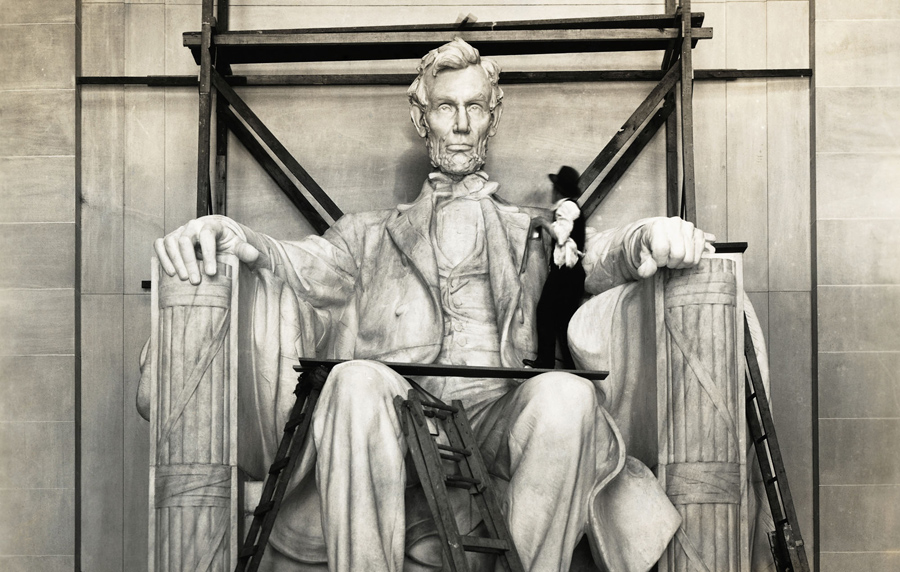Which Super-Power Might That Be?
"The West is smashing its geopolitical might on the anvil of its own foolishness. The authoritarian regimes in China and Russia are gleefully picking up the pieces."
"In May 2016, Donald Trump promised a lot of winning. 'We're going to win so much'.,” he said, 'you’re going to be so sick and tired of winning. And 'you’ll say, ‘Please, Mr. President, we beg you sir, we don’t want to win anymore. It’s too much.' "
"He turned out to be right. We just didn’t know at the time that the 'Mr. President' he was talking about was President Xi Jinping of China.""As Trump makes his diplomatic tour of Asia, the West faces a simple and unfortunate reality. There are four powers in the world that are strong enough to meaningfully shape global affairs: the United States, the United Kingdom/European Union, Russia and China."
 |
When nations construct their annals of national greatness attributing outstanding leadership to the prescient and the wise, human nature dictates that they construct a legend, not one necessarily faithful to the entire character of the individual celebrated, but given characteristics identified as heroic, for all countries are in need of national heroes, patriotism demands nothing less. And so, in the United States the two figures of greatest reverence, George Washington and Abraham Lincoln stand head and shoulders above their successors; attributions of greatness celebrated in their superior capabilities.
 |
Finishing touches are made to the huge statue of
Abraham Lincoln, which stands just inside the entrance of the Lincoln
Memorial, prior to its dedication in Washington, D.C., on May 30, 1922.
Underwood & Underwood / Corbis
|
It is a mirage. A hopeful one. One denying and defying the reality that human nature strips human beings of the potential to be truly great in measure of conscience and performance on a scale that places them on a pedestal of greatness. But we must have our illusions and the belief in the superior traits and habits of outstanding people of great virtue in whom others may place their trust and admiration and whom the young can hope to emulate -- instructs institutions to produce their own histories and heroes to feed a national psyche.
Reverence is not reserved only for the faith and belief in the presence of a supernatural power we call God. God instructed the faithful not to produce false idols nor to make of the Almighty's existence a simulacrum to be worshipped. But those human beings whose legend is elevated to the position of saintliness and creative genius, of brilliant governance of humankind and the humble aristocracy of judicial wisdom can be sanctified and monuments of heroic size and likeness erected to their memory.
 |
| King Ramses II (The Great) |
From antiquity to the present, such monuments have been the subject of both adoration and rejection; dictators order their graven images to be erected and adored. Later generations take it upon themselves to erect monuments to predecessors of great renown and respect resulting from their superior abilities to influence the lives of others for the good of the public weal. The former statues are hated and eventually destroyed, the latter remain as reminders of what human nature can aspire to, even those whose attributes are overblown, their failures overlooked.
The purportedly most powerful country in the world, the super-power has fallen on hard times. It's not just that it elected a deal-making, coarse-mannered, ill-natured celebrity who exemplified all the crude socially corrupt manifestations of the 21st Century, a man whose ignorance of world affairs, social courtesy and pluralist equality identifies him as intellectually bankrupt, or in the kind of cruder terms he uses himself; a moronic imbecile, for he represents in his elected presence the culmination of those lesser mortals who preceded him most recently.
All of whom served their country ill, all of whom served themselves first and foremost, all of whom failed the most basic tests of divorcing their most unwholesome emotional instincts in the lust for wielding power in a reflection of their limited natural intelligence and understanding of the impact it would have on their country and the extended world community.
The likeable pretender Bill Clinton whose womanizing fetish brought discredit to the presidency, George W. Bush whose sweet nature and bully impulse created a Middle East quagmire, Barack Obama whose sympathies with Islam opened America to invasion and the world to the Iranian threat, and their natural successor whose qualities embodied all the propensities of his predecessors.
The super-power waiting behind the drawn curtains in the global theatre is prepared to open the world community of trade and commerce to China's One Belt One Road to produce a global bazaar ruled by Chinese investment; trade and commerce have represented the universal state interests from antiquity to the present and China is now the world's topmost entrepreneur.
The king is dead, long live the king!
Labels: China, Communism, Democracy, History, Soviet Union, Super Power, United States

<< Home